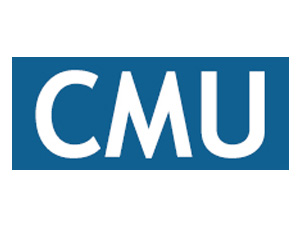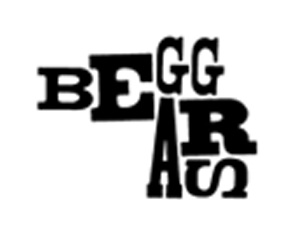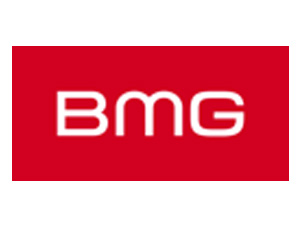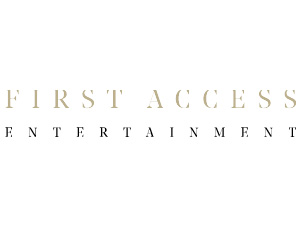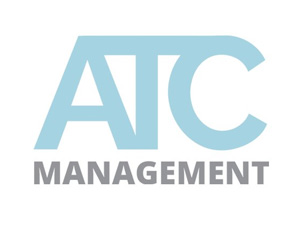COURSE SPECIFICATION and REQUIREMENTS
Length of Course: 9 months
Study Mode: Full Time
Course Start Date: September 2024
Entry Requirements: Two A-Levels at C grade/equivalent, Level 3 qualifications, or relevant music industry experience
Qualification: Creative Music Business, Certificate in Higher Education, Level 4
Awarding Institution: Rose Bruford College
Assessments & Credits: 6 Assessments totalling 120 credits
Fees and Funding: £9,250, loans are available www.slc.co.uk (Student finance is available to eligible NHAM students for our Level Four Courses with Rose Bruford College. Available Tuition Fee Loans cover the full course fee. Maintenance Loans are also available to eligible students to assist with living costs for the duration of the course).
Applications: Directly to Notting Hill Academy of Music
Creative Music Business(Cert HE)
This course offers you the opportunity to study the ever-shifting landscape of the contemporary music industry. The curriculum covers a full range of current and developing industry areas and themes, that give you a broad contextual understanding of the modern music industry and how to work within it. With an introduction to the music industry landscape, you will also explore the core fundamentals of working in the music business: how the live industry is transitioning to streaming and content, A&R, marketing, product development and business fundamentals.
The Certificate in Higher Education, Level 4 in Creative Music Business offers you the opportunity to study the ever-shifting landscape of the contemporary music industry within a professional context, taught by working industry-experts and informed by a range of dynamic music business experiences. The curriculum covers a full range of current industry issues and themes that give you a broad contextual understanding of the modern music industry and how to work within it. With an introduction to the music industry landscape, you will also explore the core fundamentals of working in the music business: how the live industry is transitioning to streaming and content, A&R, marketing, product development and business fundamentals. You will be taught by academics and specialist practitioners. Notting Hill Academy of Music seeks to give you an immersive music industry experience. All your lecturers are working industry professionals and will teach the specialist subject relevant to their own career. Your assessments have been developed to reflect the real world of working within the industry and develop the skills you’ll need to succeed in the professional world. Central to the ethos of this programme, is the drive to get you ready for industry by giving you access to the music business from the start. Depending on your progression choices after Level 4, your skills and interests, as a graduate, you will be able to work in a range of music industry professions. Notting Hill Academy of Music alumni have gone on to work in A&R, record labels, copyright, streaming services and artist management.
LANDSCAPE OF THE MUSIC INDUSTRY
From Tin Pan Alley and the Brill Building to releasing an album on Spotify. How did the music industry landscape emerge and how has it changed? This module will give you the knowledge and understanding to underpin your study of the modern music industry by understanding its past. Exploring how the current music industry emerged, will allow you to contextualise your learning and begin to understand your place within the industry either as an artist, entrepreneur or early career candidate.
Covering some key milestones and events in music industry history, the main areas of the music business and the impact of digital technology, you will evaluate the way in which the music industry, its key structures, terminology and operating models have developed and Evolved.
An indicative lecture programme relating to the module will comprise:
1. The early music industry: songwriter vs artist.
2. Music publishing.
3. The record label.
4. Live music.
5. The manager.
6. A&R.
7. Marketing and promotion.
8. Format wars: vinyl, cassette, CD, mp3, stream.
9. Death of the label: From 5 to 3, 360 degrees, label services and DIY.
10. Go digital: Napster, iTunes and Spotify.
11. Go social: Direct to Fan.
12. The future of the industry: trends, data and analysis.
STARTING A CREATIVE BUSINESS
Rapid development in digital technology, online media and remote working has made it easier than ever before to explore creating and starting your own business. Whether you intend to become an artist in control of your own career, creative entrepreneur, work within a company or have a portfolio career, an understanding of key business principles from: research, market analysis, business and financial planning, partnership and recruitment, branding, promotion and launch will support you to understand the industry and business better; and therefore support your own career development.
Through this unit, you will explore and evaluate a range of business tools, principles, plans and approaches to allow you to consider a start-up company of your own within the music industry. An indicative lecture programme relating to the module will comprise:
1. Entrepreneur success stories: music entrepreneurs.
2. The business plan: why you need it, how you create and further develop it.
3. Evaluating market need and understanding your future customer.
4. Raising capital, basic financing and understanding the three core financial reports in business.
5. Planning your start-up: managing your time, setting goals and milestones.
6. Integrating research: business planning, demonstrating market need, using data-driven evidence.
7. Persuading others. Partnering to succeed: JV, collaborative projects, recruiting.
8. Anatomy of a startup.
9. Timeline to launch.
10. Business perception, branding and promotion.
LIVE STREAMING, DIGITAL CONTENT AND EVENTS
The live events industry was an exciting and fascinating area of the music industry as artists played shows to increase their income and promote themselves or their releases. New digital technologies such as streaming, VR/AR were gathering pace but following radical changes to the operation of live events, the industry landscape has had to adapt and is now dramatically changed.
This module will look at a range of practices and approaches to creating content and experiences in an increasingly digital world that also needs to transition online, offering custom and blended approaches to the production, promotion of shows and the provision of content that audiences can consume and engage with. How do promoters and agents survive in a fully online environment? This module will cover live events and streaming revenue through broadcast, adapted event models and an in-depth look at the Music Venues Trust in conjunction with government policy for this previously lucrative area of the industry.
An indicative lecture program relating to the module will comprise:
1. Career roles in the live industry.
2. The logistics of touring at a professional level.
3. Legislation, insurance, finances and contracts.
4. Developing the performance of an artist onstage and online.
5. Digital enablement: the technology of live event operations.
6. Ticketing and percentage breaks.
7. The show promoter and their costs, moving promotion online.
8. Festivals and arena shows: history, development and evolution.
9. Merchandise.
10. Live streaming and content.
11. Brands and sponsorship.
12. Broadcast, press, promotion and marketing.
CREATING AND DEVELOPING MUSIC PRODUCTS
This module will explore how to successfully design and develop products (brand, artist, music) in the music industry, using a set of well-established industry principles used by the leading tech/digital companies today. Using these frameworks and principles, you will undergo the product development process yourself, to produce a well-evidenced business case for a new product, service, artist or artefact. Product management and development are emerging concepts within the creative industries, recognising the need of disparate disciplines and departments to come together to collaborate, bringing together cutting edge tech, business management, product design and development and customer insight to ensure that products are successful, engaging, growing and profitable.
Through this module, you will explore key concepts in product development and management, ensuring that you develop a key range of transferable skills to equip you for the current music industry whether as an artist, entrepreneur or industry professional.
An indicative lecture programme relating to the module will comprise:
1. Introducing product: key concepts and theories.
2. Product Design.
3. The product lifecycle.
4. Product Development.
5. Product Management.
6. The Artist as Product.
7. Music Services: applying product thinking.
8. Using the customer to build your product: Customer value proposition and the customer journey.
9. Beyond the product: subscription, content and surround.
10. The monetisation of your product.
11. Analysing success and continual development.
12. When to retire: withdraw, replace and enter the new.
CREATIVE INDUSTRY CAREERS DEVELOPMENT
The creative music industry is a multi-billion pound industry, whether you intend to become an artist in control of your own career, creative entrepreneur, work within a company or have a portfolio career. An understanding of future career opportunities within the industry is a must and this unit will help support your own future career development.
Through this unit, you will explore different career opportunities, apply for music industry roles, and develop your interview/ audition techniques to allow you to gain a career in the music industry.
An indicative lecture programme relating to the module will comprise:
1. Opportunities in the creative music industry: Career types, where opportunities are advertised across each type of role, long term career planning and progression.
2. Applying for a role: types of application required for different roles, how to create a suitable application to showcase your skillset and further develop it.
3. Applying for a music industry role: How to effectively sell yourself through a traditional application process eg CV/covering letter.
4. Applying for a music industry role: How to effectively sell yourself through different mediums- eg audition, portfolio or other suitable media showcasing.
5. Job Interview/ audition development: Develop Interview skills for a face to face interview.
6. Job Interview/ audition development: Develop interview skills to take part in a panel interview.
7. Job Interview/ audition development: Develop Audition/ and other methods to showcase your music industry capability in a live environment.
8. Take part in a job interview/ audition for a suitable creative industry role.
9. Interview and job application reflection; A critical review of your music industry application and interview ability to refine future techniques, and gain employment.
10. Career development and review: CPD opportunities within your chosen career pathway.
CRITICAL AND CULTURAL PERSPECTIVES
Critical and cultural theory underpins debate in today’s music and creative industries. This unit introduces you to a range of core critical and cultural perspectives and encourages you to debate these, and integrate research of this kind into your music and business programmes as you develop and create music products and also understand audiences and the broader cultural landscape to market and promote music products.
You will also learn some core research methods that will support you to create a start-up music business idea of your own as you progress through each unit and programme.
An indicative lecture programme relating to the module will comprise:
1. What is critical and cultural theory and why is it important?
2. Data and sources: collecting, integrating, interpreting.
3. Research methods in business and music.
4. Modernism and postmodernism in the creative world.
5. Popular music histories: shaping today.
6. Cultures and subcultures.
7. Studying the consumer.
8. Defining taste.
9. From research to argument.
10. Integrating critical perspective.
11. Identifying trends.




